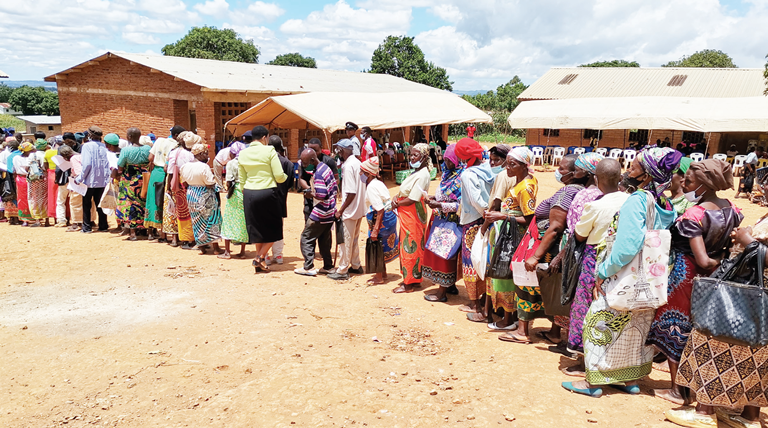Social cash transfers empower widows
Janet Mawindo, from Nchilamwera Village in Thyolo District, slid into poverty following the death of her husband in March 2012.
The 34-year-old mother of two boys, aged 10 and 12, was dependent on her deceased husband, a welder who succumbed to tuberculosis.

“His death meant that I had to become a breadwinner of the family. I didn’t know what to do next. I had no knowledge of doing any business,” she explains.
Mawindo and the two children often went to bed on empty stomachs. Looking at her starving children often left her weeping, she says.
“I had no idea how to feed them,” she recalls. “I had to do something about it, but I had no idea how to start or run a business. Besides, I had no capital,” she explains.
The widow survived on low-paying piecework in people’s homes and crop fields. The payment mostly came in form of grain flour and relish, which saved her family from starving. She also supported her aged mother in a neighbouring village.
“I had to share the meagre earnings with my mother. Life was hard, but I had no option,” she says.
In 2013, Mawindo started getting monthly cash-outs from the Social Cash Transfer Programme.
She was among the pioneer beneficiaries of the social protection programme in Thyolo, the only district where social cash transfers are fully supported by the government. Other districts are funded by the World Bank, the German Government through KfW, the European Union and Irish Aid.
The State-funded programme benefits 78 871 people from 17 876 targeted households at risk of sliding into degrading poverty if not given a hand up.
Nationwide, the programme targets 1 283 601 people in 293 632 labour-constrained and ultra-poor households.
The beneficiaries include widows, orphans, the elderly, women-headed households and children raising fellow children.
The monthly earnings eased pressure on Mawindo’s purse. She used her earnings from piecework to start producing fritters for sale within her village in Traditional Authority Nchilamwera and at Thyolo Boma.
The proceeds from the small business helped her support her family while saving part of the social cash transfers.
“After saving a considerable sum, I started selling second-hand clothes,” she narrates.
Apart from supporting her family, the proceeds of the two businesses have uplifted Mawindo to acquire vital assets, including two cows and six goats.
“I am planning to open a grocery shop,” she says.
Mawindo is a member of Kachulu Cooperative which sells milk to various dairy companies every week.
She has also built a decent house for her family. However, the discovery of Malawi’s first Covid-19 cases in April 2020 and travel restrictions imposed at the peak of the pandemic made business hard for her.
Senior Chief Nchilamwera says social sash transfers are alleviating poverty in homesteads that need support to avoid sliding into abject poverty.
“Most of the widows can now support themselves and this is very important that they have been empowered to become self-reliant,” says the traditional leader.
He says the widows so empowered and self-reliant are seldom abused and exploited by opportunistic men.
Social cash transfers are part of government’s efforts to eliminate poverty, the first target of the global Sustainable Development Goals.
Fred Simwaka, spokesperson of the Ministry of Gender, Community Development and Social Welfare, says since its inception, the programme has helped support a majority of ultra-poor Malawians.
He says: “Some beneficiaries have even graduated from the programme and [they are] doing better now. They used the money wisely though many say the amount is small.”
The ministry trains the beneficiaries to invest part of the social cash transfers in various businesses to multiply the cash.





